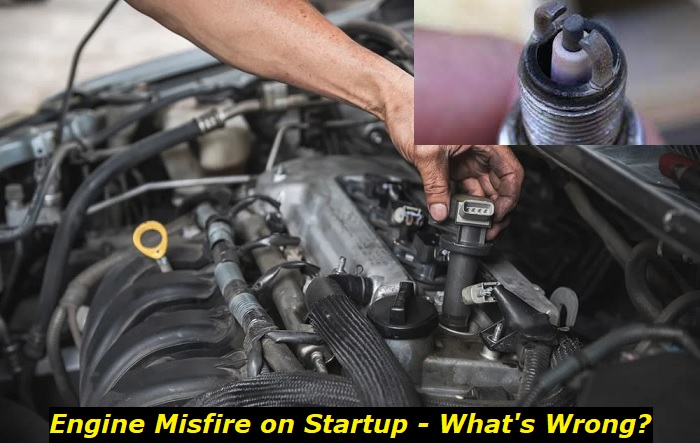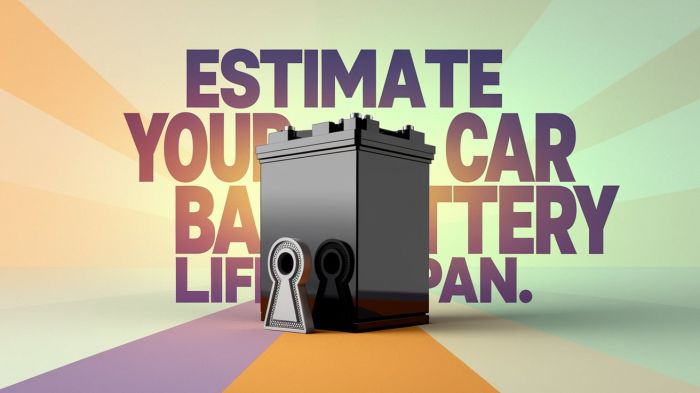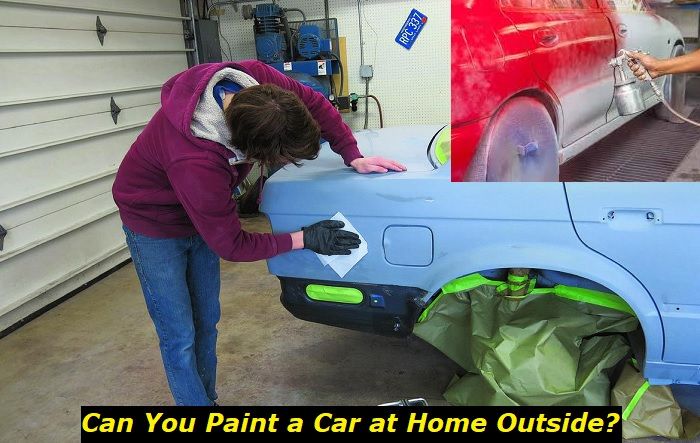Starting your car ready for work in the morning can be hampered by engine misfires. But you may not think much about this since the misfire goes away soon after. You will notice these misfires happening whenever you start the car, especially in the morning. As a keen driver, you may be wondering what is wrong with your vehicle and even get concerned that this malfunction might lead to something more serious.
Engine misfire highlights
- Level of importance:Medium
- Commonreasons:No spark, electrical problems, no fuel, low fuel pressure, injection issues, compression problems, internal engine damage
- DIY inspection:Possible but very complicated
- DIY repair:Impossible, in most cases
- Price for repair:$500 - $1,600
- Can you drive?Usually, yes
- Ways to fix:Locate the issue and let a professional mechanic fix it for you

What is an engine misfire?
A misfire happens when combustion doesn't happen in one or more cylinder heads. The engine of your car works in the four-stroke mechanism. This process involves the continuous rotation of the crankshaft. The pistons are attached to the crankshaft. They move out of the combustion chamber, and an air-fuel mixture is injected into the chamber. When the piston goes in, it pressurizes the mix, which is then ignited. The burnt gases are pressed out of the chamber, and the process starts all over again.
The combustion process involves several players. A malfunction on any of the players could lead to an engine misfire. A misfire will happen when any one of the following happens;
- There is low compression
- A lean or rich air-fuel mixture
- Air-fuel mixture is leaking
- The timing of the inlet and outlet of the air-fuel mixture is off
- Wrong ignition timing or a bad ignition spark
Symptoms of engine misfires on startup?
When the engine misfires on startup, at least during the first 1,000 revolutions, then you have a unique problem on your hands. As affected drivers report, this misfire often happens when the engine is cold. It might repeat this every morning, or it can occur intermittently. This kind of misfire is characterized by the following;
- Rough idling - This happens when the engine sensors receive messed up air-fuel mixture. This will cause the idling to fluctuate from low to high.
- Vibrations - The cylinders are designed to fire in a specific fashion to ensure the engine is balanced on the chassis and the axle. When the cylinders fire incorrectly, this will cause the engine to become unbalanced hence the vibrations.
- Check engine light - If one of the many sensors assigned the role of smooth combustion detects a malfunction, it sends a message to the vehicle's computer. The ECU will then record an error code and activate the check engine light.
- Engine sounds different - Over time, you will become accustomed to the sound of your car's engine. If you notice a difference in the sound, it is probably because the engine is misfiring.
- Reduced acceleration - The car's responsiveness is lower than before. After all, one or more cylinders are not functioning and are expected hence strangled torque from the engine.
- Worse fuel economy - A misfire means the engine will perform below optimal levels. If the misfiring cylinder continues, the air-fuel mixture injected in it will be partially or totally unburnt.
- Poor engine performance - You might feel the vehicle is struggling to power the vehicle. You will best notice this if you have passengers or towing some cargo.
- Engine cut-out - The engine can stall.
Is there an error code recorded?
When you detect an engine misfire, you should try and solve the issue as soon as possible. An old-school trick is to put a dollar bill against the exhaust, and if the exhaust sucks the note, then your engine is misfiring. You can start with a diagnostic test with a simple, cheap OBD II scanner. But note the more expensive scanners give more detailed answers or diagnostics.
The OBD II scanner will record a P0316 code if the engine is misfiring on startup. This code is recorded by the Powertrain Control Module (PCM) when it senses a cylinder or more are misfiring right after startup. The PCM will check the first 1,000 RPMs of your engine and check them against the performance parameters of the crankshaft and the camshaft. If there is a discrepancy, the PCM sets a P0316 error code.
In modern vehicles, a misfiring cylinder can be deactivated by the PCM. The PCM will further set a code to help pinpoint where the issue originated. This is to prevent any further damage.
What causes engine misfires on startup?
1) A faulty crankshaft position sensor
The crankshaft position sensor is an engine management component that monitors the crank's position and rotational speed. It sends the information to the engine control unit (ECU), which then allocates and adjusts the different variables necessary for the engine's operating conditions.
A faulty crankshaft position sensor will cause engine issues when you start the car. The engine can stall, and since it cannot provide the correct information about piston positioning, the engine misfires. Ruling out a faulty spark plug timing is critical before you explore if the crank sensor is faulty.
2) Fuel injector issues
A leaking injector can cause the engine to misfire on startup. For those who have experienced this problem, they discovered the injector valve to be faulty, and fuel was dripping through. The injector cannot hold fuel pressure when you turn off the engine.
When the engine is running and hot, the piston vaporizes the fuel. When the engine is cold, the fuel sits in the cylinder, and this causes a misfire on startup. After several cycles, the cylinder will clear itself, and the engine will run normally. When this happens, the ECM might not record an error code. A fuel injector could also be clogged or suffer from internal electrical issues.
3) Carbon buildup in the engine
Continued use of your vehicle over the years leads to carbon and sludge buildup in the engine. Some vehicles, such as VW and Audi, develop carbon buildup on the intake valve, which then causes the engine to misfire.
Several companies are selling a cleanup detergent to decarbonize the engine. These cleaning detergents are only ideal in port injection engines where fuel is sprayed directly into the intake tract. For direct injection engines, fuel is sprayed directly into the ignition cylinder; buying a detergent won't always help.
One of the tricks to consider is to blast your engine away with rough material such as walnut shells. You can do a complete chemical cleaning of the intake system though some experts have criticized it as ineffective. A complete valve is the other option you got, even though it is expensive.
Old-lady driving habits have been seen to encourage carbon buildup. Short trips that don't let the engine reach normal operating temperature and failures in the crankcase ventilation have also been blamed for carbon buildup. Once in a while, let the RPMs rise and take that 5-hour trip more often.
4) A bad fuel pump
If the fuel pump delivers inadequate pressure, it can lead to the engine running lean, hesitating when accelerating, or misfiring. The volume delivered in the cylinders can only be adequate if the pressure is high. Remember, most car engines are four-stroke; hence operations are highly timed. A good fuel pump should pump at least 750 ml of fuel in 30 secs.
5) Ignition system issues
Spark plugs are the leading suspects whenever drivers discover their cars are misfiring. Worn-out or improperly installed spark plugs are known to cause misfires. Improperly torqued plugs leak air making the air-fuel ratio become unstable. Investing in iridium spark plugs can help you avoid and solve misfire issues.
6) Vacuum leaks
Each engine cylinder is supposed to be air tight. Vacuum leaks cause the engine to misfire and idle unevenly. These leaks let air enter the combustion chamber hence diluting the air-fuel mixture. If such air dilution goes beyond a certain level, the piston will not ignite the air-fuel mixture in the cylinder and this results in a misfire. As a self-diagnosing strategy, the PCM increases the fuel and air servings to all cylinders. The misfires continue, unburnt fuel leaves the exhaust, the car performance goes down, and the fuel consumption rises.
7) A faulty PCM
A faulty PCM can end up sending more fuel or more air than necessary to the combustion chamber. The piston will act as stated earlier failing to ignite the mixture.
8) A clogged catalytic converter
A clogged catalytic converter causing a misfire on startup is not common. You should check other common causes like the spark plugs and the injector before you can start on the catalytic converter.
Conclusion
An engine misfire on startup if ignored can lead to more serious problems which might end up forcing you to cough up a lot of money. It is critical that you solve such misfires sooner than later.
About the authors
The CarAraC research team is composed of seasoned auto mechanics and automotive industry professionals, including individuals with advanced degrees and certifications in their field. Our team members boast prestigious credentials, reflecting their extensive knowledge and skills. These qualifications include: IMI: Institute of the Motor Industry, ASE-Certified Master Automobile Technicians; Coventry University, Graduate of MA in Automotive Journalism; Politecnico di Torino, Italy, MS Automotive Engineering; Ss. Cyril and Methodius University in Skopje, Mechanical University in Skopje; TOC Automotive College; DHA Suffa University, Department of Mechanical Engineering






Add comment